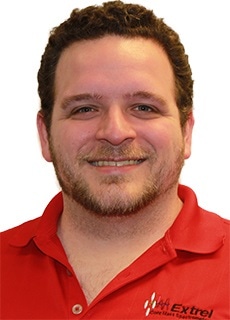 Interview conducted by Mychealla RiceJul 25 2016
Interview conducted by Mychealla RiceJul 25 2016In this interview Dr, Sean C. Pawlowski from Extrel talks to AZoM about introducing Mass Spectrometry into the education system to help educate the next generation of Scientists.
What drove Extrel to develop a system for education?
We started out many decades ago as a start-up company out of the University of Pittsburgh in 1964. Our early years were focused only on educational institutes and academic research. As time went on Extrel expanded and grew and explored industrial mass spectrometry, high end research, and governmental applications of mass spec. Extrel wasn’t the only one diversifying and expanding. During that time a lot of educational institutes suffered from the expense and complications involved in high end instrumentation. One of the issues I would run into in graduate school was needing to use research level instrumentation for the upper level labs I TA’ed, that was either down due to maintenance or being used for research. The students wouldn’t get experience with the instrumentation they should. Luckily Extrel felt that educational opportunities were worth it.
How does it differ from other mass spectrometers though?
The IQ-2000 mass spectrometer is a gas analyzer capable of measuring atmospheric gas samples or, by the addition of a sample bulb, the headspace off of a liquid. However this isn’t that unusual for a gas analyzer. The IQ-2000 really shines from the hardware standpoint. The system features an open design with glass windows on three of the four sides along with a glass lid. All of the components can be removed easily and handed out to a class to examine. The system is a dry system with a small diaphragm pump and turbo pump that are integrated into the system, no need to make extra floor or bench space for the pumps.
Are there any other advantages to the IQ-2000 platform?
Along with the physical system, we developed a fully interactive electronic textbook to go with the system. We felt that most mass spectrometry textbooks out there are too high level for an undergraduate education curriculum. We worked with some leading educators in the field of analytical chemistry and instrumentation. The e-book will be available for students from the Kindle and iBook store. A fully enhanced version will be available through the iBook store.
Are there any systems in the field yet? How are they performing?
We are pleased to be working with Georgia Tech currently where the faculty member has two incoming sophomores who have been learning on the system since last semester. The professor loves how easy its been to actually show what the components are while the system is running.
We also just delivered the first system that was awarded a partial grant from Extrel to St. Olaf College in Minnesota. We’re excited to hear more as they integrate it into their instrumentation classes.
You mentioned a partial grant from Extrel, what is that?
The Extrel partial grant is an excellent solution for schools that maybe can’t afford a full mass spectrometry system. We feel so strongly about integrating mass spectrometry into undergraduate education we are awarding a grant to qualifying institutions for up to 1/3 of the price of the instrument.
In order to be awarded the grant, any U.S. based educational institution only needs to fill out a simple application answering a few questions and telling us about their goals for integrating mass spectrometry into their school. They usually find out quickly whether they were awarded the grant.
Where can readers find more information?
The product website is a great place to start :
https://extrel.com/products/
But they can also send any requests direct to [email protected].
About Dr. Sean C. Pawlowski 
Sean C. Pawlowski joined Extrel in 2011, training in the Technical Support group eventually moving into a Scientist position in 2012. Sean has been the Product Manager in charge of Research markets at Extrel since May 2013, managing the MAX-QMS, MAX-LT, and the VeraSpec product lines of high end residual gas, research and laboratory-benchtop quadrupole mass spectrometers. In 2016 was appointed Research Products Manager. Sean has brought his passion for educating and discovering new aspects of science. Extrel’s thousands of research systems installed worldwide, has given Sean the opportunity to work closely with customers in many different disciplines including the atmospheric chemistry, aerospace, environmental, material science, semiconductor, ion chemistry and biofuel disciplines.
Sean C. Pawlowski earned his Ph.D. in Analytical Chemistry under Mitch Johnson at Duquesne University. He earned his B.S. from Wheeling Jesuit University in Chemistry.
Sean C. Pawlowski is an active member in many professional societies including Alpha Chi Sigma, ACS, AAAS, ASMS, and others.
Disclaimer: The views expressed here are those of the interviewee and do not necessarily represent the views of AZoM.com Limited (T/A) AZoNetwork, the owner and operator of this website. This disclaimer forms part of the Terms and Conditions of use of this website.